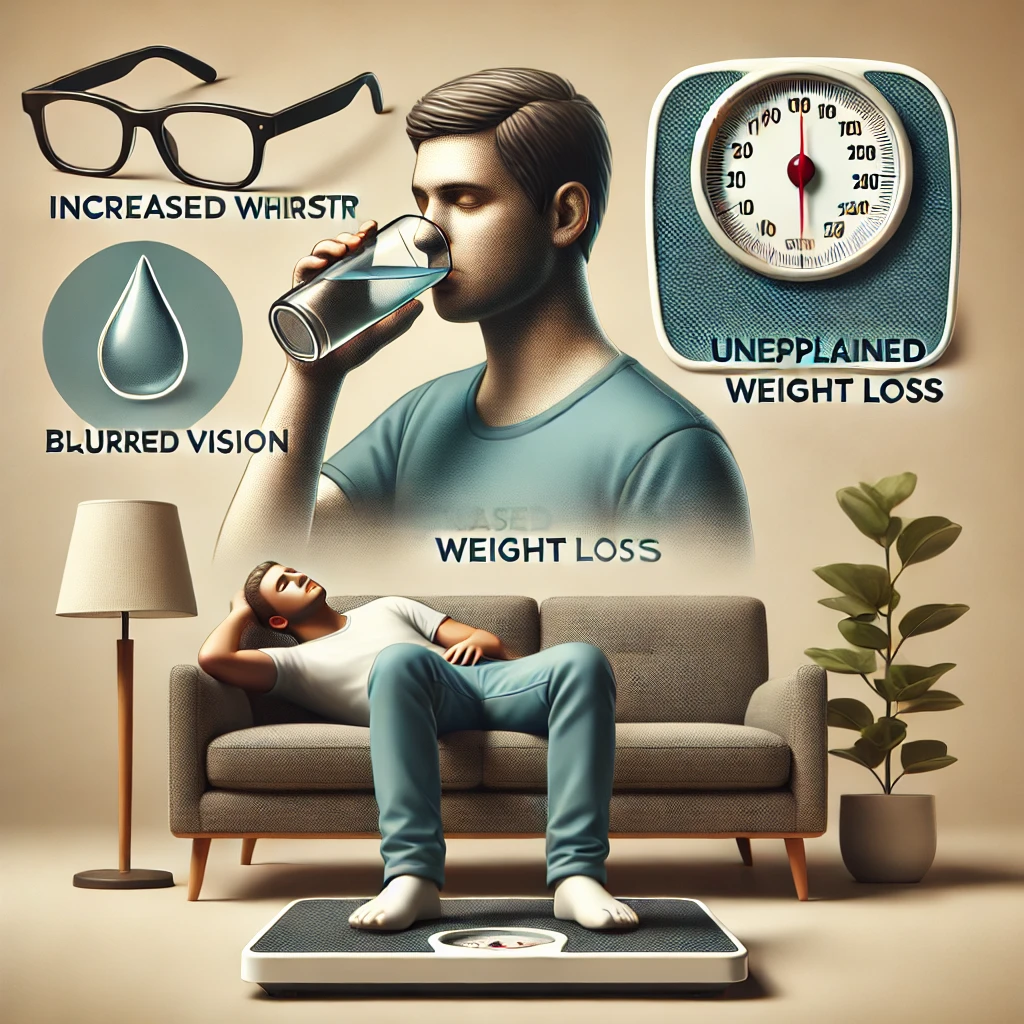Introduction: Diabetes is a chronic condition that can have serious health consequences if not managed properly. Early detection is key to preventing complications, making it crucial to recognize the early signs of diabetes. By identifying symptoms early, you can take steps to manage your health and potentially avoid the need for medication.
Understanding Diabetes: Diabetes occurs when the body either does not produce enough insulin or cannot effectively use the insulin it produces. Insulin is a hormone that helps regulate blood sugar levels. When insulin is insufficient or ineffective, blood sugar levels can rise, leading to various health problems.
Common Early Signs of Diabetes:
- Increased Thirst and Frequent Urination: Excessive thirst and frequent trips to the bathroom, especially at night, are common early signs. The kidneys work overtime to filter and absorb the excess sugar, leading to more frequent urination and dehydration.
- Unexplained Weight Loss: If you’re losing weight without trying, it could be due to your body burning fat and muscle for energy instead of glucose.
- Fatigue: High blood sugar levels can prevent glucose from entering cells, leading to fatigue and a lack of energy.
- Blurred Vision: High blood sugar can pull fluid from the lenses of your eyes, affecting your ability to focus.
- Slow-Healing Wounds: Cuts and sores that heal slowly or frequently get infected can be a sign of high blood sugar levels.
- Numbness or Tingling in Hands and Feet: High blood sugar levels can affect your nerves, causing tingling, numbness, or pain in the hands and feet.
Why Early Detection Matters: Identifying and addressing these symptoms early can prevent the progression to more severe health issues such as heart disease, kidney damage, or vision problems. If you notice any of these signs, it’s important to consult a healthcare provider for testing and advice.
Conclusion: Recognizing the early signs of diabetes is crucial for managing the condition effectively. By staying aware of these symptoms, you can take proactive steps to maintain your health and prevent complications.
